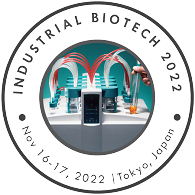Bio manufacturing, Bio refinery and Biofuels
Biomanufacturing is a type of manufacturing or biotechnology that utilizes biological systems to produce commercially important biomaterials and biomolecules for use in medicines, food and beverage processing, and industrial applications. Biomanufacturing products are recovered from natural sources, such as blood, or from cultures of microbes, animal cells, or plant cells grown in specialized equipment. The cells used during the production may have been naturally occurring or derived using genetic engineering techniques.
Biorefining is the efficient processing of biomass into a wide range of marketable products and energy. By means of co-producing relatively (high) value chemicals (e.g. fine chemicals, pharmaceuticals, polymers) the production costs of secondary energy carriers potentially could become market competitors, especially when biorefining is integrated into the existing chemical, material and power industries. Industrial biorefineries have been identified as the novel route to the creation of a new domestic biobased industry. By producing multiple products; a biorefinery can take advantage of the differences in biomass components and intermediates and maximize the value derived from the biomass feedstock.
Advanced biofuels are fuels that can be processed from numerous types of biomass. First generation biofuels are processed from the sugars and vegetable oils formed in arable crops, which can be smoothly extracted applying conventional technology. In comparison, advanced biofuels are made from lignocellulosic biomass or woody crops, agricultural residues or waste, which makes it tougher to extract the requisite fuel. Advanced biofuel technologies have been devised because first generation biofuels manufacture has major limitations. First generation biofuel processes are convenient but restrained in most cases:
- Second generation biofuels
- Microbial pathways for advanced biofuels product
- Synthesis of advanced biofuels
- Lignocellulosic Biomass
- Biorefining scheme from algal and bacterial protein sources
- Biorefining systems
- DNA sequencing
- Blood plasma fractionation
- Cell culture
- Cell separation, such as filtration and centrifugation
- Column chromatography
- Filamentous fungi
Related Conference of Bio manufacturing, Bio refinery and Biofuels
Bio manufacturing, Bio refinery and Biofuels Conference Speakers
Recommended Sessions
- Agriculture Biotechnology & Agro-forestry
- Animal Biotechnology and Marine Biotechnology
- Bio manufacturing, Bio refinery and Biofuels
- Biochemistry and Protein Engineering
- Bioinformatics, Systems Biology and Computational Biomedicine
- Biomaterials, Bio polymers & Biosensors
- Bioprocessing & Secondary Metabolites
- Biotechnology in Vaccine Production
- Environmental Biotechnology and Waste Water Management
- Enzyme Engineering and Drug Discovery
- Fermentation technology
- Genetic Engineering and CRISPR/Cas 9 Technology
- Industrial and Chemical Biotechnology
- Industrial Biotechnology and Nutrigenomics
- Microbial Biotechnology and Food Processing
- Molecular Bio sensing , Bio robotics and Biomarkers
- Molecular Biology
- Nano-biotechnology and Bio therapeutics
- Petroleum Biotechnology and Green chemicals
- Pharmaceutical and Medical Biotechnology
- Synthetic and Systems Biotechnology
Related Journals
Are you interested in
- 3D Printing in Microfluidics - Microfluidics 2026 (Germany)
- AI & Automation in Microfluidic Systems - Microfluidics 2026 (Germany)
- Biomedical Microfluidic Applications - Microfluidics 2026 (Germany)
- Clinical Translation & Commercialization - Microfluidics 2026 (Germany)
- Droplet-Based Microfluidics - Microfluidics 2026 (Germany)
- Lab-on-a-Chip Innovations - Microfluidics 2026 (Germany)
- Microfabrication & Soft Lithography - Microfluidics 2026 (Germany)
- Microfluidic Biosensors & Diagnostics - Microfluidics 2026 (Germany)
- Microfluidic Cell Culture Platforms - Microfluidics 2026 (Germany)
- Microfluidics for Drug Delivery - Microfluidics 2026 (Germany)
- Microreactors & Chemical Processing - Microfluidics 2026 (Germany)
- Nanofluidics & Molecular Transport - Microfluidics 2026 (Germany)
- Organ-on-Chip Engineering - Microfluidics 2026 (Germany)
- Point-of-Care Microdevices - Microfluidics 2026 (Germany)
- Single-Cell Microfluidic Analysis - Microfluidics 2026 (Germany)

